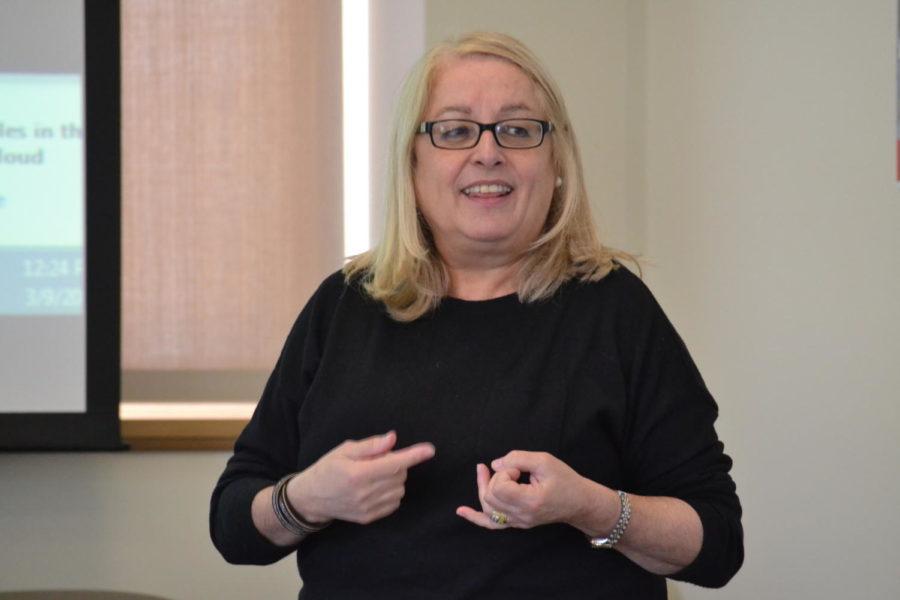Iowa State professor presents importance of interdisciplinary research
March 9, 2017
An Iowa State professor spoke on how to solve problems in the world through the use of interdisciplinary research using statistics Thursday afternoon at Morrill Hall.
Alicia Carriquiry, distinguished professor of statistics, has been involved in nutrition and dietary research, veterans’ issues concerning mental health and forensic science and fair administration of justice. Her presentation was part of the Award-Winning Faculty Series.
When researching problems to solve with statistics, Carriquiry uses three focus points. First, the research should be relevant to our culture and affect many people. Second, the outcomes of the research should be science-based but should also give practical solutions to the problems people are facing. The final point that Carriquiry made is that the methods should be implementable.
“If you’re going to be working on something that you hope people will adopt, you have to provide people the tools to adopt your work,” Carriquiry said.
In Carriquiry’s professional life, these have helped her achieve recognition. Her work in nutrition has earned her a place in the National Academy of Medicine. The problem she worked on assessed the “adequacy of nutrient intake” and was designed to improve levels of nutritional intake.
This “ISU Method” is now used worldwide and backs up programs such as the School Lunch Program, Women, Infants, and Children (WIC) and the Gates Foundation. The software created to use this information is public domain, and free training is provided.
The second research area Carriquiry is focusing on is veterans’ issues. This study was performed to understand if the veterans had access to mental health care and if they took advantage of it.
Carriquiry said veterans have been deployed more frequently and for longer amounts of time, increasing the need for mental health care services.
“The number of soldiers that have seeked mental health services in the VA (Veterans Affairs) increased by over 3 million,” Carriquiry said.
Further findings of the research Carriquiry has done will be published later this year and will include whether there are barriers that prevent veterans from getting help and what quality of services they are receiving. The research team will then give recommendations to Congress based on its findings.
“Even though we hear all these horrible things about the VA … there is no better health care system in the United States,” Carriquiry said.
Forensic statistics is also another area that Carriquiry is working in. She is the director of the Center for Statistics and Applications in Forensic Evidence (CSAFE). CSAFE recently received a $20 million grant that will be put toward forensic statistic research. The center is at four universities, with Iowa State being the head university.
The goals for CSAFE are to develop statistic foundations for patterns and cyber evidence and to engage forensic practitioners and transfer technology. This research would help make matches for crime scene evidence to evidence collected from a suspect.
Carriquiry gave credit to Iowa State for helping students get involved in interdisciplinary work.
“ISU has always provided a nurturing environment for cross-disciplinary activities,” Carriquiry said.
















